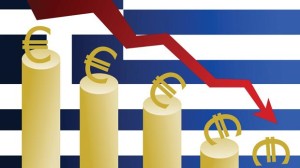Known knowns: A Greek exit would endanger the whole euro project
 As the European Union gets into an emergency huddle today, the language of the threat posed by Grexit remains unsaid.
As the European Union gets into an emergency huddle today, the language of the threat posed by Grexit remains unsaid.
Here it is: The euro would no longer be an irreversible reality.
Is this why an EU official started off on Monday commending the new Greek austerity proposals as a “good basis for progress”? It’s hard to conceive of what Greece could possibly have offered that would be enough to satisfy the EU and international creditors that savings will ensue.
But, the EU seems determined to look on the bright side. For, if default happens and Greece has to leave the 19-member eurozone, what happens to the single currency? Thirteen years and five months after eurocoins and banknotes physically entered into circulation, Greece’s exit would have revealed the project as exactly that – a project, a work-in-progress, a let’s-see-if-we-can-swing this venture.
It would no longer have the irreversible permanence that might be considered a basic feature of a currency. And which was the big dream in the run up to January 1, 2002, the day the euro was physically introduced.
Last week, European Union Economic and Monetary Commissioner Pierre Moscovici characterized the risk in oblique terms. He said he was “attached” to two characteristics of the euro. “The first one is integrity and the second one is irreversibility.”
A Greek departure from the club would hit at both.
The next time there’s fiscal trouble on the continent, bets would be placed on comings and goings.
Goings mostly.

